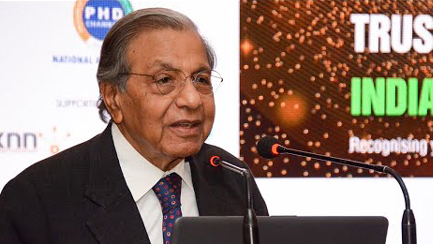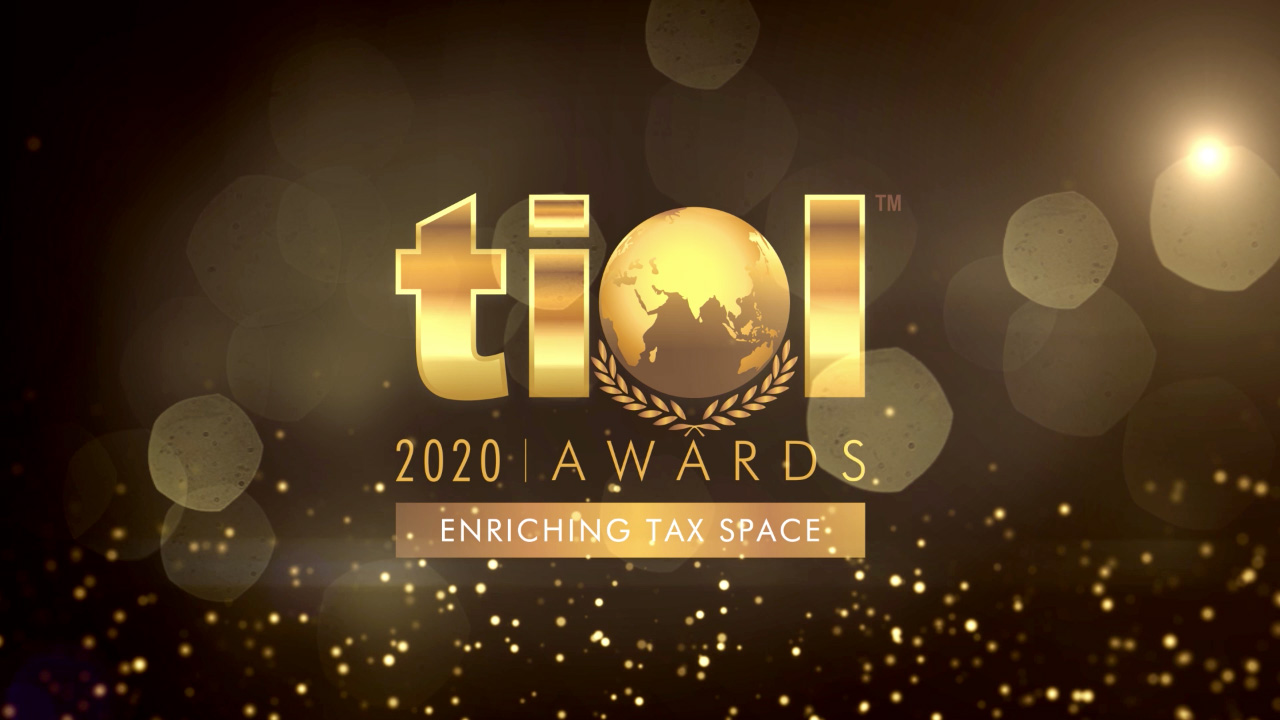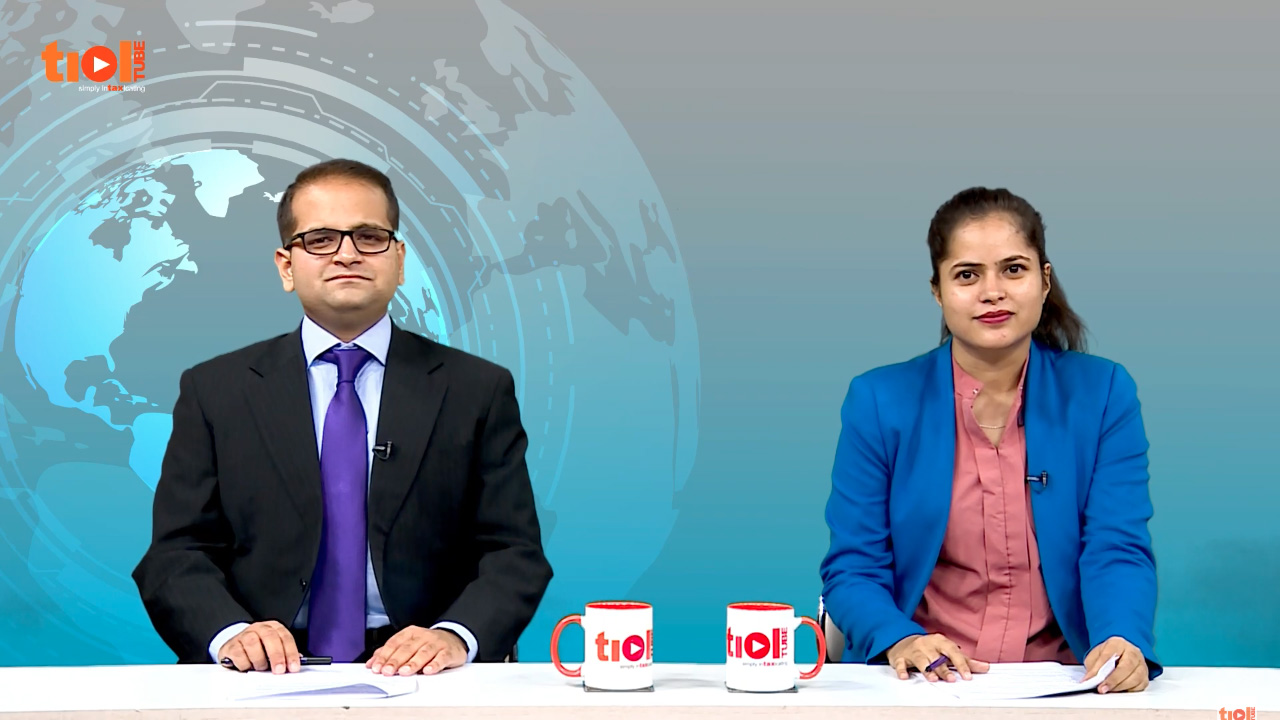|
SERVICE TAX
2019-TIOL-3486-CESTAT-MUM Indian Institute Of Technology Vs CST
ST - The assessee is a reputed institution which renders taxable services categorized under Technical Consultancy Service u/s 65(105)(za) of the Finance Act 1994 - It also provides non-taxable or exempted services in the form of imparting education - While providing such services, the assessee took cenvat credit of service tax paid on various input services - Such input services were used to provide taxable and non-taxable exempted services - As the assessee was not maintaining separate accounts for both types of services as per Rule 6(2) of CCR, the assessee was required to follow the procedure as per Rule 6(3) and reverse the credit attributable to those input services which were used for providing non-taxable or exempted services - Three SCNs were issued to the assessee, proposing to deny credit of common input services availed during the relevant period - On adjudication, the demands were confirmed and were later sustained on appeal.
Held - The CCR are rules prescribing the procedure for payment of Central Excise or Service Tax duty on the finished products or output services - These rules are self contained and provide for the mechanism to avoid cascading effect of the tax paid on the input services - The approach of the Commissioner that just because the assessee failed to comply with certain procedural requirements, the entire credit should be denied to them, cannot be upheld - The purpose of adjudication is to find out the truth and determine the actual credit which is admissible - There is no doubt in respect of eligibility to taxable services received by the assessee qualifying as input service u/r 2(l) - Hence the next issue is as to whether as per Rule 6 of CCR, the major service provided by the assessee, i.e., imparting education, is an exempted service - Undisputedly, the assessee did not follow the procedure prescribed for availing the options provided u/r 6(3A) of the CCR 2004, to the extent that the assessee did not give any intimation to the Range Superintendent with the particulars for availing the second option of reversal of credit determined on proportionate basis - However, the assessee claimed to have reversed the credit attributable to exempted services, during the relevant period - But the fact of reversal u/r 6(3) was not correctly recorded in the ST-3 returns - The assessee also produced charts showing the erroneous depiction made in ST-3 returns - Considering such charts, the errors in depicting the amounts reversed are quite obvious - But the correction of the same cannot be verified - If it is the assessee's case that it reversed credit u/r 6(3)(ii) but erroneously did not show the bifurcation in the ST-3 returns, the failure of the assessee just not to claim such option at the start of the FY by filing the intimation about availing such option with range superintendent is merely a procedural violation and must be condoned - But if it is not so and the assessee had not reversed the credit in its books of accounts as mandated by Rule 6(3)(ii), then it failed to comply with the Rules - However, the adjudicating authority recorded no findings in this regard - Hence the matter merits remand to record findings in this regard and pass a speaking order after proper verification of account books and ST-3 returns for such period - As the matter is being remanded, no findings recorded in respect of interest and penalty - These aspects be decided as well by the adjudicating authority - Considering that the matter has long been pending, the exercise be carried out within four months' time: CESTAT
- Case remanded: MUMBAI CESTAT
2019-TIOL-3485-CESTAT-BANG
Gateway Hotels Vs CC, CE & ST
ST - The assessee is engaged in providing taxable services under categories of 'restaurant services', 'accommodation services', 'mandap keeper', 'maintenance and repair', 'banking and financial', 'health club and fitness centre services', 'security agency', 'business auxiliary services', 'internet café', and 'renting of immovable property services' - They are paying service tax under category of accommodation services, restaurant services after availing of abatement of 50% and 70% respectively on the gross value of receipt as provided vide Notfn 1/2006-ST as amended vide Notfn 34/2011-ST - The Department entertained the view that the assessee is providing taxable as well as exempted services but not maintaining the separate accounts which is required as per Rule 6 of CENVAT Credit Rules - During the period from 01/04/2008 to 30/04/2011, assessee was not liable to pay service tax because the accommodation service and restaurant service became taxable only from 01/05/2011 and no CENVAT credit reversal was required under Rule 6(3) of CCR - For the subsequent period from 01/05/2011 to 30/06/2012, assessee availed abatement with respect to restaurant service and accommodation service as per Notfn 1/2006-ST - During the relevant time, availment of abatement vide Notfn 1/2006-ST cannot be considered as exempted service for the purpose of reversal of CENVAT credit as per Rule 6 of CCR - Further for the demand for the period from 01/07/2012 to 31/03/2013, the definition of exempted service was again changed - The assessee during this time have availed the benefit of abatement with regard to accommodation service as per Sl.No.6 of Notfn 26/2012 which provides that 40% of value of accommodation service has been exempted from levy of service tax on the condition that credit on input and capital goods used for providing the taxable service have not been taken under provisions of CCR - Further, there was no restriction with respect to availment of CENVAT credit on input services as per the said notification and the only restriction was with respect to availment of CENVAT credit on inputs and capital goods - The assessee is availing the benefit of abatement with respect to accommodation services under Notfn which cannot be considered as exempted services - As far as, restaurant services are concerned, assessee is not availing any abatement notification - Further, as per Rule 2C of STR, 2006, value of service portion involved in supply of food or any other article of human consumption or any drink in a restaurant has been fixed as 40% of total value on the condition that CENVAT credit on inputs classified under Chapters 1 to 22 of CETA, 1985 are not taken - When the statute itself prescribes a percentage as total value as the value of service, the remaining portion of the value would neither be considered as an abatement nor as an exemption and accordingly the restaurant service would not be covered under the definition of input service and hence the provisions of Rule 6 of CCR are not applicable - During the relevant period in both the cases, assessee have availed the total CENVAT credit of Rs.23 lakhs whereas vide the impugned order, the Commissioner is demanding more than Rs.80 lakhs which is more than the total credit availed and on this ground also, the demand is not sustainable - For the period April 2008 to March 2012, the entire demand is barred by limitation because the SCN was issued on 21/10/2013 for the period April 2008 to March 2012 whereas the normal period of limitation is one year - Extended period in the present case cannot be invoked because the law on the point was not clear and the definition of exempted service was changed from time to time and the interpretational issue was involved - Therefore, the substantial demand for the period from April 2008 to March 2012 amounting to Rs.69,76,592/- is entirely time barred - Further, the Tribunal in the earlier order passed in favour of assessee has observed in the finding that for the subsequent period, the Assistant Commissioner vide O-I-O has dropped the demand in SCN raised on identical grounds - The assessee is not required to comply with the provisions of Rule 6 of CCR, 2004 - Consequently, the impugned order is not sustainable in law: CESTAT
- Appeals allowed: BANGALORE CESTAT
CENTRAL EXCISE
2019-TIOL-3492-CESTAT-BANG
Bharat Fritz Werner Ltd Vs CCT
CX - CENVAT - Department alleged that since the factory gate is the 'place of removal' for the goods cleared by assessee and the outward freight which is used for clearance of final products beyond the factory gate did not fall within the purview of definition of 'Input service' as per rule 2(l) of CCR, the credit availed on outward freight is irregular - credit denied, hence appeal before CESTAT.
Held: After the decision of the apex Court in the case of Ultratech - 2018-TIOL-42-SC-CX, wherein it is held that after the amendment in the definition of ' Input Service' with the words 'up to the place of removal' in the year 2008, the place of removal will always be factory gate and the assessee is not entitled to CENVAT credit on GTA up to the buyer's premises, the Board has issued a Circular 1065/4/2018-CX dated 08.06.2018 wherein the field formations have been given the liberty to examine each and every case on the basis of the law laid down in various decisions - various Benches of the Tribunal have remanded the case back to the original authority to examine the eligibility of credit of service tax on transportation of goods up to the customer's premises - following the ratio of the said decisions and the decision of the Madras High Court in the case of Bata India Ltd. - 2019-TIOL-1861-HC-MAD-CX and the Board Circular date 08.06.2018, the matter needs to be remanded to the original authority to verify certain factual aspects such as whether the sale is on FOR basis, whether the freight is an integral part of the sale price, whether the duty paid on the value is inclusive of freight amount etc. - appeal is, therefore, allowed by way of remand: CESTAT [para 6]
- Matter remanded: BANGALORE CESTAT
2019-TIOL-3484-CESTAT-AHM
Star Industries Ltd Vs CCE & ST
CX - The appellant-company has one more independent unit at Thane, which manufactures plain PVC films/sheets falling under Chapter sub-heading 3920.11 and 3920.12 and clears the same on payment of duty to the Daman unit, which is the appellant herein - The appellant carries out post-calendaring operations such as checking/inspection of PVC films/sheets, cutting/slitting and packing jumbo rolls into smaller rolls - During the relevant period, 19 SCNs were issued to the Thane unit proposing to recover duty on grounds that the value at which the goods were cleared to the Daman unit was lower than the comparable market price - Later, the Tribunal set aside the demand raised in respect of the Thane unit and upheld the valuation at which the goods were cleared to the Daman unit - Such order was accepted by the Department and attained finality - Simultaneously, an SCN was issued to the Thane unit proposing to recover duty on cash amount recovered towards printing charges - On adjudication, it was noted that since the issue was in relation to the Daman unit, the SCN issued to the Thane unit was without jurisdiction - Fresh SCN was issued for recovery of a different amount - Such SCN culminated into an O-i-O by which duty was sought to be recovered with interest and penalty - Later the Tribunal remanded the matter with directions to pass fresh orders after cross examination of various witnesses - The appellant submitted a request for cross-examination - Personal hearing was fixed after passage of over 18 months - Subsequently, after a gap of about 14 years, a personal hearing notice was issued to the appellant - As the witnesses did not appear for cross-examination, the assessee requested that the matter be proceeded with as the hearing was pending for over 20 years - Later, an O-i-O was passed confirming the SCN which was issued over 20 years ago - Hence the present appeal.
Held - It is clear that the Revenue cannot be expected to endlessly wait for an assessee to cooperate with the adjudication proceedings before passing an order - The findings of the adjudicating authority to not rely on a judgment cited by the appellant, on grounds that it was due to the appellant's negligence by losing the SCN and documents and seeking copies thereof and not appearing for the hearing and not attending the cross examination, appears to be contrary to the facts recorded in the O-i-O in challenge - As it is, the findings in the O-i-O are negated by the decision in the case of Premier Ltd., v Union of India - In any event, an assessee cannot be faulted or his actions cannot be termed as negligence if the assessee seeks copies of SCN and relied on documents when the matter is not adjudicated for 20 years - Similarly, the adjudications sought for by the appellant were due to non-availability of witness for cross-examination - Even now, the matter was adjudicated at the appellant's request - In any event, the O-i-O merits being quashed as the activity of cutting/slitting/printing of PVC sheet carried out at Daman unit did not amount to manufacture and evidence relied on by the Revenue is not conclusive to prove receipt of cash and or charge of undervaluation against the appellant: CESTAT
Held - Limitation - There is force in the appellant's submission that the facts were within knowledge of the Revenue inasmuch as the 19 SCNs issued to the Thane unit were dropped based on the report of the Daman commissionerate - It is not open to the Revenue to claim ignorance of facts when the Thane unit was earlier issued an SCNs for undervaluation and the proposal of the Revenue was to include the value of printing charges in the assessable value of the plain PVC Sheets manufactured at Thane - As the facts were known to the Department, extended period of limitation cannot be invoked in view of law laid down by Supreme Court in Nizam Sugar Factory v. Collector - Besides, the activity of carrying out printing on plain PVC sheets amounts to manufacture was litigated over the years and ultimately settled by the Supreme Court in favour of the assessee in the case of Caprihans India Ltd., v. Commissioner of Central Excise - The allegations in the SCN are based on receipt of cash towards printing charges by the appellant and are not supported by any corroborative evidence - Hence extended limitation is not invokable: CESTAT
- Assessee's appeal allowed: AHMEDABAD CESTAT
CUSTOMS
2019-TIOL-3483-CESTAT-MUM
Ratnadip Shipping Pvt Ltd Vs CC
Cus - Suspension of license - Appellant had filed Shipping Bill No 8616721 dated 31.10.2018 on behalf of exporter namely M/s Cube Impex (IEC No BPPPA5593F). SIIB started investigation in respect of the said Shipping Bill, for a case of illegal export of contraband substance purported to be ketamine under the provisions of NDPS Act, 1985 read with the provisions of Customs Act, 1962 - On the basis of the statements of Shri Mukesh Prabhu Desai, Director and Shri Nilesh Nimbalkar, employee of assessee, it was alleged that the assessee has failed in fulfilling the obligations cast on him under CBLR, 2018 and has thus contravened the provisions of said Regulation - From the findings recorded in impugned order, Tribunal is not in position to decipher any cause of immediate action or continued action of suspension - While passing the order, for continued suspension Commissioner has relied upon the decision of Punjab & Haryana High Court in Naresh Sharma - 2010-TIOL-816-HC-P&H-CUS, which was passed in case of immediate action of suspension and not in the proceedings subsequent to immediate suspension for continuation of suspension - It is not the case that assessee have come in challenge against the order of immediate suspension issued by Commissioner - Subsequent to the order of immediate suspension, after hearing the assessee, Commissioner have passed the impugned order continuing with the order of immediate suspension - In such a case, how this judgment of Punjab and Haryana High Court, advances the case for continue suspension is not understood - There is enough power vested in commissioner to suspend the license of Custom Broker in terms of CBLR, 2018 - However said power which impact the livelihood of the person and his employee needs to be exercised with caution and in accordance with the inbuilt safeguards, to prevent the arbitrary and reckless use of the power - One of the safeguard that has been built in the scheme, is to decide the matter after affording the post decision hearing in case of immediate suspension - This post decision hearing is not an empty formality but the responsibility cast on the Commissioner to decide the issue of continuation of suspension in reasonable and logical manner by way of speaking order, clearly recording the reasons for suspension of licence - The Commissioner has not recorded any reason for the cause of immediate suspension or continuation of suspension - No merits found in the impugned order to sustain the same: CESTAT
- Appeal allowed: MUMBAI CESTAT |
|



ADAHEAD_15.jpg)





